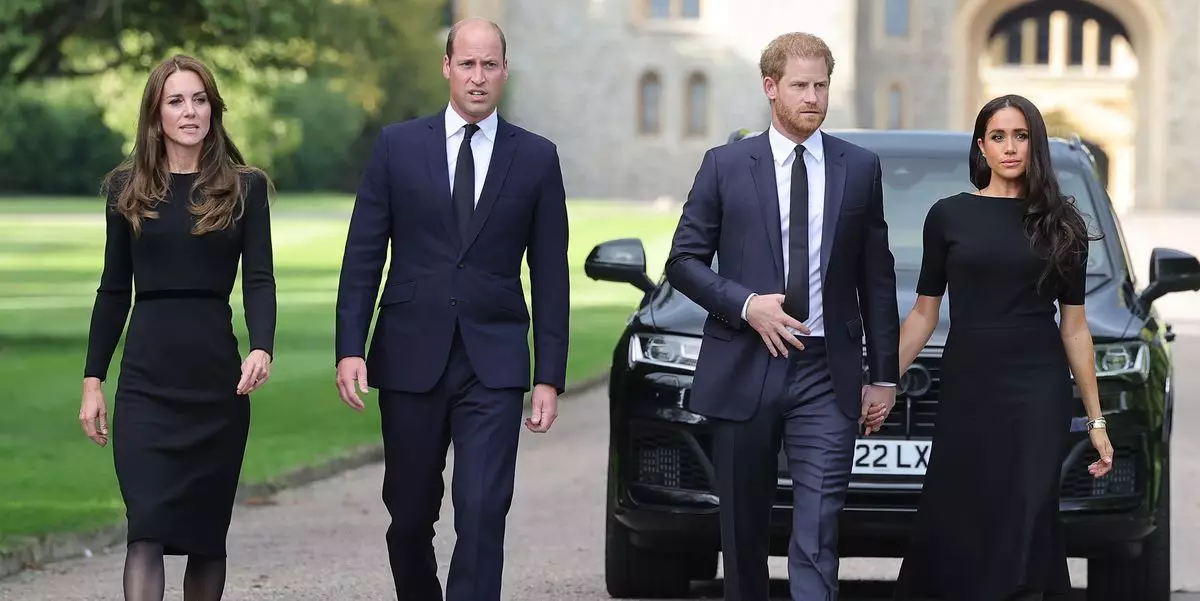The ongoing tensions within the British royal family, particularly between Prince Harry and the core members, have captured the public’s attention for years. It is a saga that reflects not only personal grievances but also the complexities of familial duty intertwined with the demands of modern life. Prince Harry’s candidness about the fractured relationships with his father, King Charles, and brother, Prince William, provides insight into a story filled with emotional depth and conflicting priorities.
Since relocating to California in 2020, the Sussexes have faced hurdles when it comes to visiting the U.K. Security concerns have emerged as a significant barrier. According to sources, this has fueled a growing disconnect, where the couple feels both informed and excluded from critical conversations within the royal fold. The idea that trust has eroded is alarming yet unsurprising given the tumultuous history the Sussexes share with the family.
Mindsets at Odds
There is a palpable difference in the way Harry and Meghan perceive their current situation. Meghan Markle’s focus appears to be on entrepreneurship and a forward-looking lifestyle, while Harry grapples with the emotional weight of history. Despite her steadfast support for her husband, there is a clear indication of a desire for him to transcend the burden of the past—an aspiration that, if achieved, could facilitate a more peaceful coexistence.
The revelation that King Charles is undergoing cancer treatments adds a layer of complexity to their strained interactions. A father in a vulnerable state should ideally draw his family closer, yet for Charles, the shadows of past betrayals complicate the prospect of reconciliation. This scenario raises profound questions about familial loyalty and the harsh realities of public life.
Seeking Protection and Privacy
A recurring issue for Harry has been his request for police protection during their trips to the U.K. This contentious topic underscores a fundamental right that he believes his family should have—one that is typically reserved for working royals. Their unsuccessful appeal for security highlights a significant disparity in treatment, suggesting that the evaluation of risk is deeply entwined with trust issues. The royal family’s reluctance to accommodate Harry’s needs not only prolongs their estrangement but also diminishes the safety and comfort one would expect from the institution.
The couple’s willingness to share their experiences through various platforms, including their Netflix special and Harry’s memoir, has further alienated them from royal insiders. The intimate details unveiled in these narratives painted a more public picture of their struggles, making private family matters part of public discourse. Many royal watchers are left pondering whether the price of authenticity is simply too high.
The Cost of Vulnerability
In a revealing moment, Harry disclosed regret over omitted sections of his memoir that could have further estranged him from his father and brother. This personal dilemma magnifies the emotional stakes involved in sharing one’s truth. The fear of betrayal, whether it be by family or the public, reinforces the idea that Harry remains caught in a delicate balancing act of honesty and loyalty. His admission of self-censorship speaks volumes about the relationships at play—a complicated web woven with love, fear, and the haunting specter of what lies ahead.
The future of the Sussex family remains uncertain as they navigate these turbulent waters, seeking a balance between individual autonomy and the bonds of blood. Each step forward or back is fraught with implications that could shape not just their lives but the landscape of the monarchy itself.

